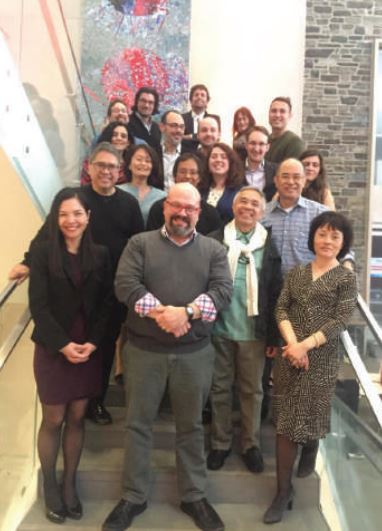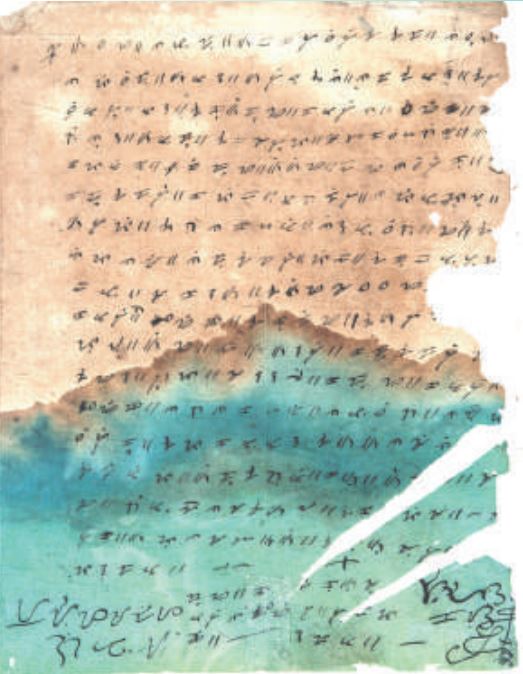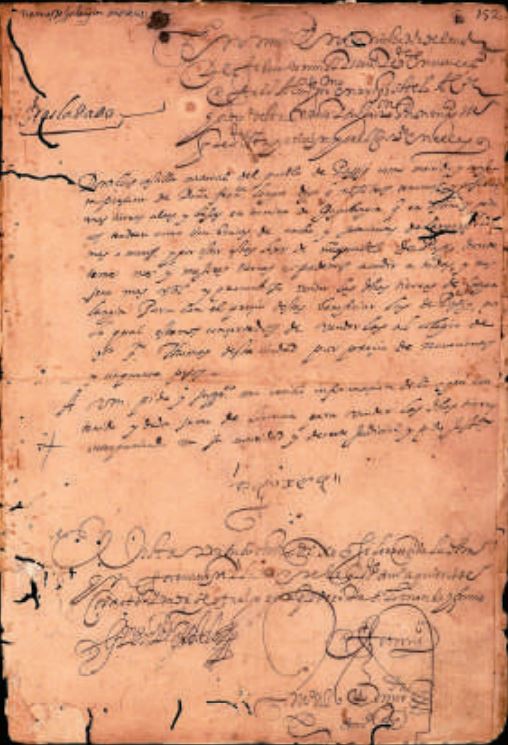University of Santo Tomas Archivist Prof. Regalado Trota José presented
a paper at a workshop in Princeton University in New Jersey with the theme “The Spanish Transpacific, Between East & West (1521 – 1815).” Presenting insights about the Hispanic norms during colonial times, his paper examined texts that form part of a dossier on the lands of Don Luis
Castilla, which include the UST Baybayin Documents that have been declared as a National Cultural Treasure in November 2014.

The study, which José prepared for over a year, involved painstaking
transcription and translation of the selected parts of Castilla’s dossier into English. Comprising fifteen historic documents, the papers formed a volume of documentation for parcels of land that were eventually
acquired by the University of Santo Tomas in 1634. One third of the documents tackle the process of publicly announcing the sale of lands, another third are the deeds of sale, and the rest are about the process of selling the land, which had some contestation.
The final document is the actual sale of 11 pieces of land that are currently in Gagalangin, Tondo. Through the well-documented process of transferring these properties, from Castilla’s initial proposal to sell the land
in 1629 to the actual sale in 1634 due to delays from contestation, several insights were gained regarding the 17th century Spanish legal system and its functions. Part of this was the process of owning and selling lands, from a formal petition to sell the land, to an announcement in Church, to declaration and collection of proofs of ownership, to contestation, and
the actual sale. Prof. José said that, “The present selection is one of the oldest extant examples of a Spanish legal process in the Philippines.”
While it was known that Baybayin was used at the time for personal matters such as love letters or poems, its use is not prevalent in formal legal contexts where Baybayin is limited to signatures or phrases only. “So [our Baybayin documents] are rare in the sense that the whole document is in
Baybayin,” Prof. José remarked.
Another insight that the documents reflected was the economic power of
women, who were able to own and sell land even during that era. As the signature on certain documents proves, it was actually Doña Francisca Longar, the eventual wife of Don Luis Castilla, who originally bought and
owned some of the parcels of land. Upon her first marriage to Don Andres Capiit, she was able to own even more land, before marrying Castilla after Capiit’s death.
José in Princeton Prof. José was proud to say that most of his fellow presenters in Princeton have previously done research in the UST Archives
and had a high degree of respect for the University and its extensive heritage collection.
He recalled that some peers even referred to UST as La grande y famosa Universidad de Santo Tomas. “[The foreign scholars’ high regard] really goes to show how important the UST Archives is in the world,” he said.
During his stay in Princeton, Prof. José also established linkages with Princeton University’s Firestone Library. “We saw some of the collections and how they took care of books and documents, then we tried to make
future connections with the library. I brought some of UST’s books there for their collection. The UST Archive catalogues were sent beforehand to them, so they have a copy in Princeton library.” An exchange of books was
facilitated, and he hopes to further continue the connections with Firestone Library. Organized by Princeton Institute for International and Regional Studies, the workshop was sponsored by PrincetonUniversity’s Department of Spanish andPortuguese, their Latin American Studies
Program.
The workshop in Princeton included the leading scholars of the early modern transpacific from across the globe and brought them together with the goal of producing a reader of primary sources (in Spanish,
indigenous languages, Latin, and Chinese) as well as bibliographical references translated into English. It also attempted to address the increasing interest in understanding the cultural productions that originated from the transpacific connections between Latin America and Asia in the context of the early modern Spanish colonization.
Prof. Jorge Mojarro y Romero of the UST Graduate School, also presented a paper titled “An Early Transpacific Account on the Spice Islands by Andres de Urdaneta (1536).” The University of Santo Tomas was the only Philippine university represented in the workshop. National Archives of the Philippines Director Victorino Manalo was also a presenter






